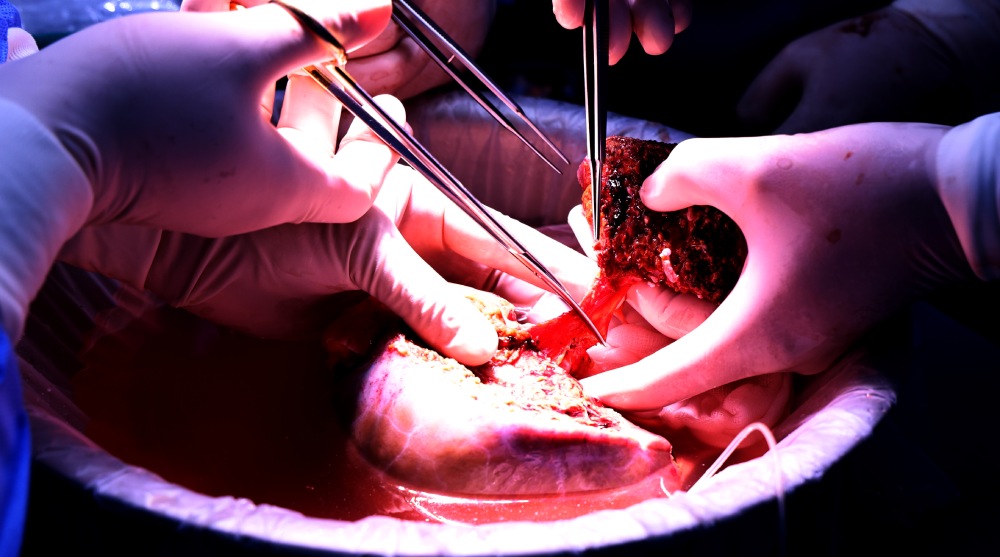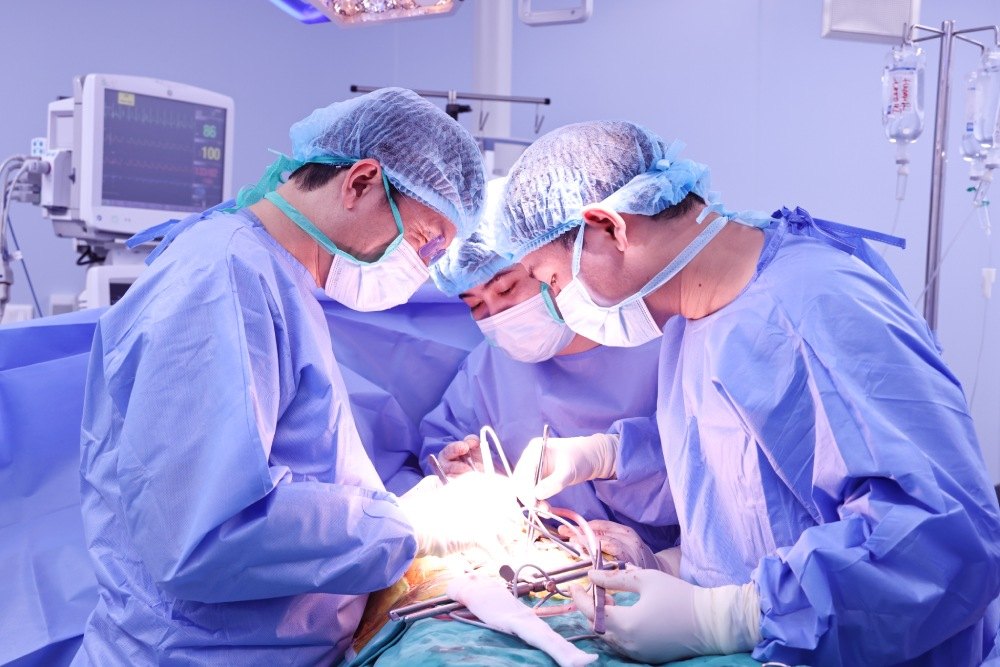On November 10, 108 Central Military Hospital said that the hospital had removed a multi-organ transplant from a brain-dead donor, saving the lives of 6 patients with serious illnesses and 2 patients waiting for transplants. This is the 4th case of a multiple organ transplant from a brain-dead donor of the Hospital in 2025.
The brain-dead donor was a 55-year-old male soldier. The patient has a history of high blood pressure, a stroke, and a double brain injury, and dyslipidemia.
On November 4, the patient was admitted to the hospital due to a disturbance of consciousness, it is difficult to say at the second hour, and was diagnosed with a second-term acute cerebral infarction due to clogged coronary artery tops, narrowing V4 artery on both sides of the vertebrae at the second hour, and emergency intervention to remove the thrombosis. After the intervention, the condition did not improve, changing the shape of right cerebral hemorrhage. Doctors actively treated the patient, but the miracle did not come to the patient.

After receiving information about the patient's condition and with a charitable and humane heart, the patient's family agreed to donate organs to save other patients waiting for a chance to live.
Immediately, on the morning of November 9, 108 Central Military Hospital organized an inter-hospital consultation, and the hospital's specialties agreed on the plan to take and transplant organs.
From a brain-dead liver leaf, the team of 108 Military Central Hospital divided it into two complete pieces to transplant to two patients at the same time - an adult at 108 Hospital and a child at Vinmec Hospital. The abdominal liver division technique is one of the most complex techniques, requiring the surgeon to accurately assess the structure of the liver, blood vessels, and gallbladder and coordinate synchronously between the teams.
With this multiple organ transplant from a brain-dead donor, 108 Central Military Hospital performed: Heart transplant for 01 patient; divided liver for transplant to 2 patients (one patient at 108 Central Military Hospital; transported left liver thus to Vinmec Hospital); 2 kidneys were transplanted to 2 patients with end-stage renal failure; removed and transported lungs to Central Lung Hospital; 2 corneas were taken for preservation, waiting for transplant to two patients in accordance. Teams and departments need to coordinate closely and rhythmically, because all patients rely on us," said Major General, Professor, Dr. Le Huu Song - Director of the 108 Central Military Hospital.
From a liver leaf of a brain-dead donor, the surgical team divided it into two complete liver pieces, capable of being transplanted to two patients at the same time: An adult ( transplanted at the 108 Central Military Hospital) and a child ( transported to Vinmec Hospital).
Astrong liver culture for transplantation has the following advantages: Preserving liver blood irrigation during the division process; Limiting the time of cold blood anemia; Control blood vessel and gallbladder pathology well; Reduce the risk of limb damage due to external factors - Associate Professor, Dr. Vu Van Quang - Deputy Head of the Department of liver - Thyroid Surgery, 108 Central Military Hospital - said about choosing the technique of liver division in the abdomen for implementation.

For the heart transplant, the patient was diagnosed with stage D heart failure due to extensor heart disease and had an left cavity culture to prolong the transplant waiting time.
The patient was once given left amputation support tools, so the surgery will be difficult because it is very sticky, it is necessary to ensure and calculate tactically and technically very carefully. With experience, and the coordination between appropriate stages, we have shortened the anemia time of the heart to only 80 minutes (from the time of clogging the arteries in the donor to when the heart is re-watched in the recipient)," said Dr. Ngo Vi Hai - Head of the Department of Thoracic Surgery, 108 Central Military Hospital.
At the same time, in two other operating rooms, kidney transplant teams are urgently performing kidney transplants for two patients with end-stage renal failure. For 02 kidney transplants, both transplanted kidneys functioned well, each kidney's urine flow rate was about 300ml/hour, and urine was inhaled. The patients are all in good condition.
After the transplant, the patients received intensive care and treatment, 24/7. Currently, the health of patients with liver and kidney transplants is improving smoothly, liver and kidney function is improving well. The heart transplant continues to be monitored and actively cared for.











